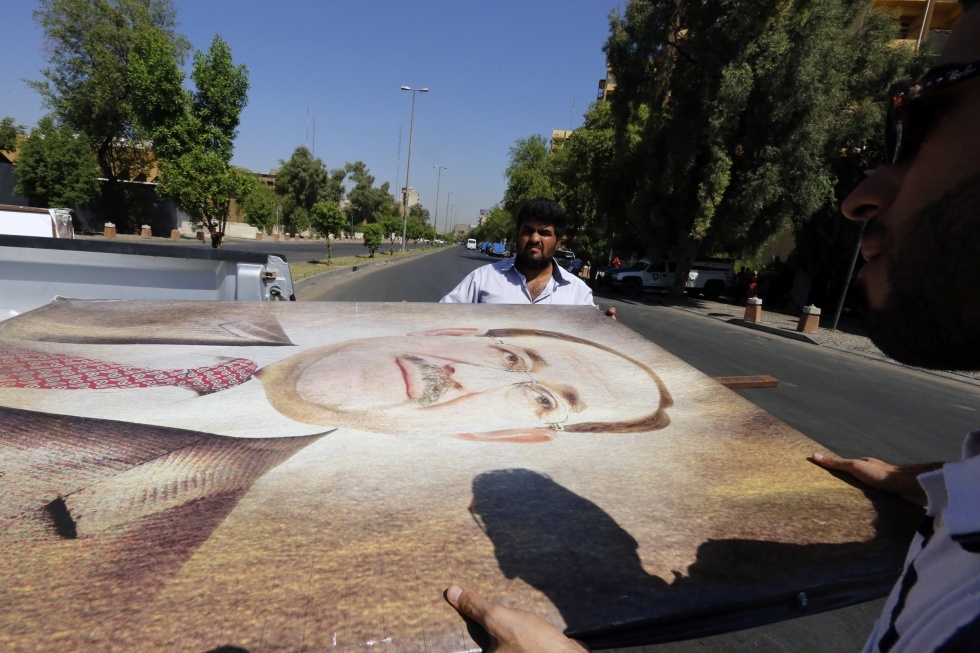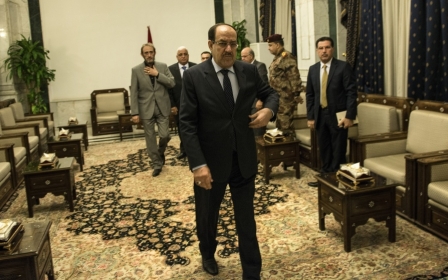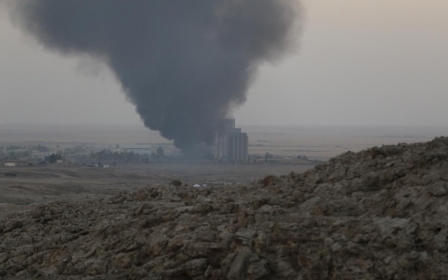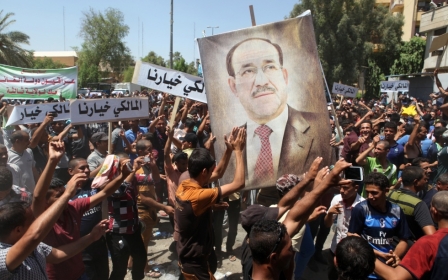Iraq's Maliki says he will not quit until court decision

Iraq's outgoing Prime Minister Nuri al-Maliki said Wednesday it will take a court ruling for him to leave power, defying the president's decision to task a rival with forming a government.
"I confirm that the government will continue and there will not be a replacement for it without a decision from the federal court," Maliki said in his televised weekly address.
The two-term premier has accused President Fuad Masum of violating the constitution by approving the nomination of Haidar al-Abadi, a member of his Dawa party, to form a government, and vowed he would sue.
But the prospects of Maliki - who told reporters in 2011 that he would not seek a third term - succeeding in his quest to cling to office appear dim.
And international backing has meanwhile poured in for Abadi, including from both Washington and Tehran, the two main foreign power-brokers in Iraq.
Iran's Supreme Leader Ali Hosseini Khamenei appeared to throw his support behind Abadi in a tweet on Wednesday after Maliki's comments.
The shaky political transition comes at a time of crisis for Iraq.
After seizing the main northern city of Mosul in June and sweeping through much of the Sunni heartland, militants bristling with US-made military equipment they captured from retreating Iraqi troops launched another onslaught this month in the country's north.
On Tuesday, 130 additional US military advisors arrived in the Kurdistan capital of Erbil as a UN expert warned that Iraqis still stranded on Sinjar Mountain face a "potential genocide" within days or hours.
The advisors will "give more in-depth assessment of where we can continue to help," US Defence Secretary Chuck Hagel told marines during a visit to Camp Pendleton in California on Tuesday night.
Hagel reiterated that American combat troops will not be sent into Iraq, echoing President Barack Obama's repeated concentration on the building of an inclusive Iraqi government as the only solution to end the crisis.
“As the president has made very clear, we’re not going back into Iraq in any of the same combat mission dimensions that we once were in Iraq,” Hagel said. “Very specifically, this is not a combat, boots-on-the-ground operation. We’re not going to have that kind of operation. But short of that, there are things we can continue to do and we are doing.”
Maliki's rejection of Abadi on Wednesday underscored analysts who told MEE this week that the war-torn country has not sailed out of troubled political waters yet.
"Maliki is using a scorched earth policy when refusing to step aside and allow a new government be formed," said Sabah al-Mokhtar, an Iraqi-born observer who heads the Arab Lawyers Association in London. "He is willing to drag the country into further chaos rather than let go of power."
The arrival of the US advisors comes as an unknown number of Iraqis, mostly Yazidis, remain atop the barren Sinjar Mountain where they arrived more than a week ago after Islamic State militants captured the town of Sinjar at the base of the mountain.
Over the past week, as US airstrikes have targeted IS militants around Sinjar, Kurdish Peshmerga forces on the ground have rescued at least 20,000 of those on the mountain. The US began urgently shipping arms and ammunition to the Peshmerga earlier this week.
Click here for an MEE infographic which looks at IS militants' advance into northern Iraq in recent weeks, including Sinjar. Despite the progress and comments from US Secretary of State John Kerry on Tuesday, saying that the advisors are assessing how to get the civilians off the mountain, defense officials have reportedly cautioned that they don't have enough reliable information about the crisis to begin planning any relief operations, according to a report on the news website Politico.
The Pentagon, the report said, is not sure how many people are on the mountain, although the UN said on Tuesday that as many as 30,000 people were still stranded.
UN minority rights expert Rita Izsak warned that they face "a mass atrocity and potential genocide within days or hours".
The additional advisors brings the total number of American troops in Iraq to more than 900, including special operators and troops sent since IS campaign took stride in June, according to Politico.
Click here for an MEE infographic which looks at IS militants' advance into northern Iraq in recent weeks, including Sinjar.
New MEE newsletter: Jerusalem Dispatch
Sign up to get the latest insights and analysis on Israel-Palestine, alongside Turkey Unpacked and other MEE newsletters
Middle East Eye delivers independent and unrivalled coverage and analysis of the Middle East, North Africa and beyond. To learn more about republishing this content and the associated fees, please fill out this form. More about MEE can be found here.




